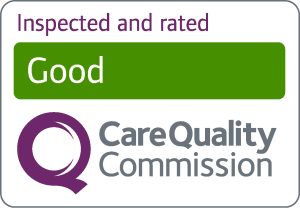What is an Iron Infusion?
An IV iron infusion is a medical treatment used to deliver iron directly into the bloodstream through a vein. This treatment is often recommended when oral iron supplements are ineffective, poorly tolerated, or when rapid replenishment of iron is needed.

IV Iron Infusion
Conditions That an Iron Infusion May treat
Low Iron or Anaemia
Kidney problems (especially if you’re on dialysis)
Gut conditions like Crohn’s disease or ulcerative colitis that make it hard to absorb Iron
Heavy periods that cause blood and Iron loss
During pregnancy when extra iron is needed
Symptoms of low iron
Low iron levels can lead to symptoms such as:
Fatigue
Reduced energy
Shortness of breath
Rapid heartbeat (heart palpitations)
Pale skin
Why choose Chequers Health
Consultant Led Care
Fast and Effective Services
Modern and Comfortable Setting with Ample Parking
Patients from Bolton, Bury, Manchester, Wigan and the Northwest choose Chequers Health for professional IV Iron Infusions
They are truly the best among all the centres offering a range of services, including intravenous iron infusions. The staff were exceptionally kind, professional, and genuinely caring — I felt completely comfortable and well looked after throughout my visit.
Our Treatment Process
Consultant-Led Care, Guided by Best Clinical Practice
Investigation
IV Iron Consultation
Our haematologist will create a personalised treatment plan based on your test results and individual needs.
IV Iron Infusion
Contact Us for More Information
Our Consultants


Frequently Asked Questions
You will need to come into clinic for a short period of time before the infusion, for the duration of the infusion and you will then be asked to stay for further monitoring for about 30 minutes after the infusion.
Oral iron is used initially to treat iron deficiency anaemia. Sometimes this does not produce enough of an improvement, or it may be that your doctor needs to replenish your iron quickly. Intravenous iron is used when oral iron has been tried or if it is not suitable and it helps to reduce the use of blood transfusions.
Intravenous iron is an extremely safe and effective therapy. Some of the side effects that have been reported are:
- Staining – If your cannula was to displace from your vein during treatment the drug could be deposited in your skin rather than into your bloodstream. This could result in a brown stain to the skin. If you notice pain at the injection site during your treatment, please inform the nurse caring for you immediately. This will minimise any such risk.
- Change in total body skin colour – This is an extremely rare occurrence. It has been reported that some patients noted their skin to become darker (like a suntan) for a period of weeks after treatment with intravenous iron. This was not permanent and resolved after several weeks.
- Allergy – historically intravenous iron preparations carried a risk of allergy (ranging from a mild reaction like itchy skin through to anaphylaxis that could be life threatening). With today’s modern iron preparation this is uncommon (1 in a 100 to 1 in a 1000 risk). Please inform the nurse caring for you immediately if you experience any of the following during your treatment (swelling of lips, tongue, face or throat, shortness of breath, itching, a feeling of all over body heat, heart racing heat or faint like symptoms)
- Delayed reaction – Although uncommon, some patients may experience muscle or joint pains and fever in the days after treatment. This usually lasts two to four days and can be managed with simple painkillers like paracetamol Iron infusions are commonly used after the first trimester in pregnancy. It is important that you also read the patient information leaflet for the product.
Your anaemia/ low blood count is expected to improve.
If you are taking oral iron, you should stop this the day before you come into our clinic for your Iron Infusion.
Within our treatment room at our Bolton Health Centre.
You may rarely experience muscle or joint pains; these can be managed with simple painkillers such as paracetamol.
Simple painkillers for any joint pain can be taken when you go home following your completed monitoring period at our clinic.
It is not anticipated that your iron infusion will affect your ability to undertake your usual activities.
It is not anticipated that your iron infusion will affect your ability to undertake your usual activities.
If left unaddressed, iron deficiency can have significant long-term health consequences. Beyond the fatigue and discomfort it causes, untreated iron deficiency can severely impact your quality of life, affecting daily activities, work productivity, and general well-being. It’s crucial to identify and manage iron deficiency before it progresses to more severe forms, such as anaemia.
Although you consent for this treatment, you may at any time after that withdraw such consent. Please discuss this with your medical team.



